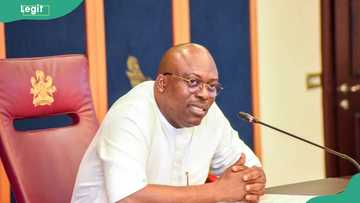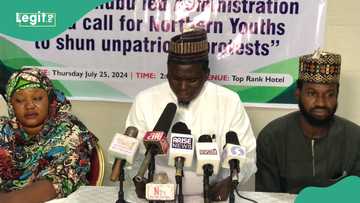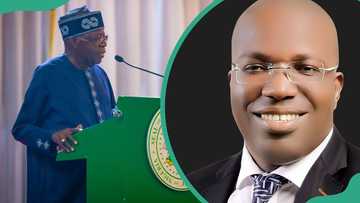List of 11 Protests that Forced Change in Nigeria: Will the Looming Hardship Protest Follow Suit?
Nigeria is on the cusp of yet another wave of public demonstrations as citizens prepare to take to the streets to express their discontent with the current economic hardship.
From the Aba Women's Riot of 1929 to the EndSARS movement of 2020, Nigeria has witnessed numerous protests that have left an indelible mark on its history.
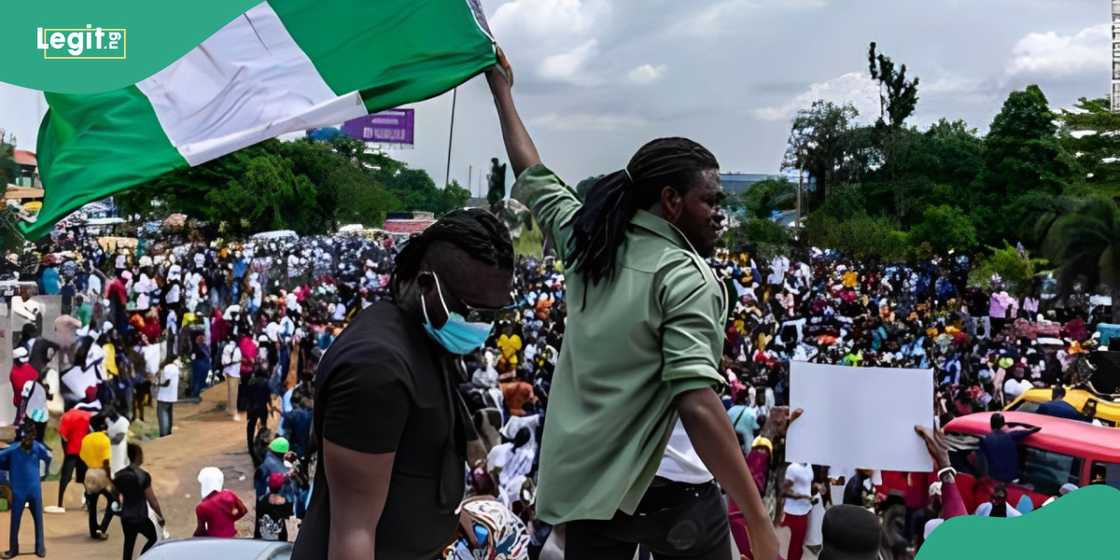
Source: Twitter
As the country gears up for the looming hardship protest, one cannot help but wonder: will this latest outcry from the masses be enough to force the hand of change, or will it fade into the annals of history as just another example of a people's frustration? Here are 11 significant protests that have left a lasting impact on Nigeria:
The Aba Women's Riot (1929)
Also known as the Aba Women's War, women led this protest in the southeastern region against British colonial taxation policies and the warrant chief system.
PAY ATTENTION: Click “See First” under the “Following” tab to see Legit.ng News on your Facebook News Feed!
The protest resulted in the British authorities abolishing the warrant chief system and reconsidering their taxation policies.
The Abeokuta women's tax protest 1946
In Abeokuta, a series of protests by women (Egba Women's Tax Riot) erupted in response to new tax policies imposed by local authorities.
The women, many of whom were small traders and market vendors, voiced their opposition to what they described as excessive tax burdens that threatened their livelihoods.
The protests saw significant turnout, with demonstrators calling for a review and reduction of the new tax rates, which they argued were disproportionately high and unsustainable.
The Coal Miners' Strike (1949)
Nigerian coal miners in Enugu protested against poor working conditions and low wages.
The strike led to significant changes in labour laws and improved worker conditions.
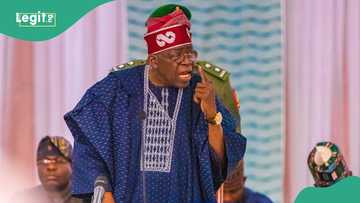
Read also
Tinubu opens up on how he led peaceful protests in Nigeria: “Don’t resort to destruction of properties”
The 1964 General Strike
Nigerian workers organized a nationwide strike demanding higher wages and better working conditions, PM News reported.
The strike led to wage increases and set the stage for future labour movements in Nigeria.
The Ali Must Go Protests (1978)
University students protested against the education policies of then-Education Minister Dr Jibril Aminu, nicknamed "Ali."
The protests resulted in the government making concessions on student demands and highlighting student movements' power.
The June 12 Protests (1993)
Following the annulment of the June 12, 1993, presidential election, which was widely believed to have been won by Moshood Abiola, Nigerians took to the streets to demand the restoration of democracy.
The protests eventually led to the end of military rule and the establishment of a democratic government in 1999.
The Niger Delta Protests (1990s-2000s)
Communities in the Niger Delta region protested against environmental degradation and economic exploitation by oil companies.
The protests brought international attention to the plight of the Niger Delta and led to various government initiatives to address the region's issues.
Occupy Nigeria (2012)
Nigerians protested against the government's removal of fuel subsidies, which led to a significant increase in fuel prices.
The protests forced the government to reinstate the subsidies partially and highlighted the power of social media in organizing protests.
Bring Back Our Girls (2014)
Following the abduction of over 200 schoolgirls by Boko Haram in Chibok, Nigerians and the international community demanded their immediate release.
The campaign brought global attention to the Boko Haram insurgency and pressured the Nigerian government to intensify efforts to rescue the girls.
End SARS Protests (2020)
A nationwide protest against police brutality, explicitly targeting the Special Anti-Robbery Squad (SARS), BBC reported.
The protests led to the disbandment of SARS, although demands for broader police reforms continue.
Lekki Toll Gate Protests (2021)
Following the End SARS protests, demonstrators gathered at the Lekki Toll Gate to commemorate the victims of the October 20, 2020, Lekki shooting, New York Times reported.
The protest reignited discussions about police reforms and accountability in Nigeria, maintaining pressure on the government to address these issues.
These protests reflect Nigerians' persistent struggles and resilience in their quest for justice, equality, and better governance.
Northern youths warn Tinubu over economic hardship
In a related development, Legit.ng reported that the Coalition of Northern Groups (CNG) has issued a stark warning to President Bola Tinubu, highlighting the urgent need to address the escalating economic hardship millions of Nigerians face.
The group's National Coordinator, Comrade Jamilu Aliyu Charanchi, issued this warning on Friday, July 19.
The CNG expressed deep concerns over the potential for widespread civil unrest if immediate and effective measures are not taken.
PAY ATTENTION: Stay Informed and follow us on Google News!
Source: Legit.ng

